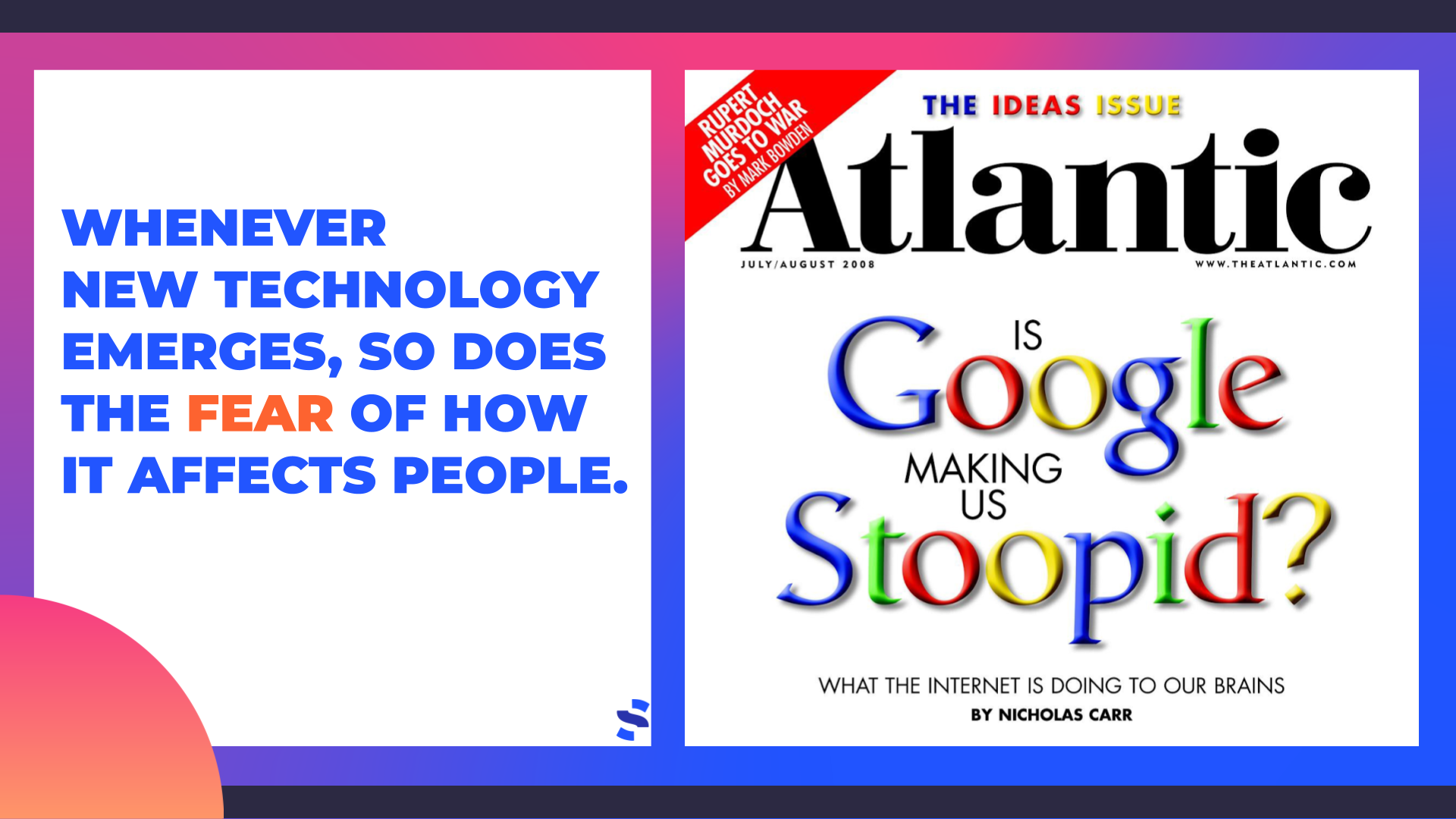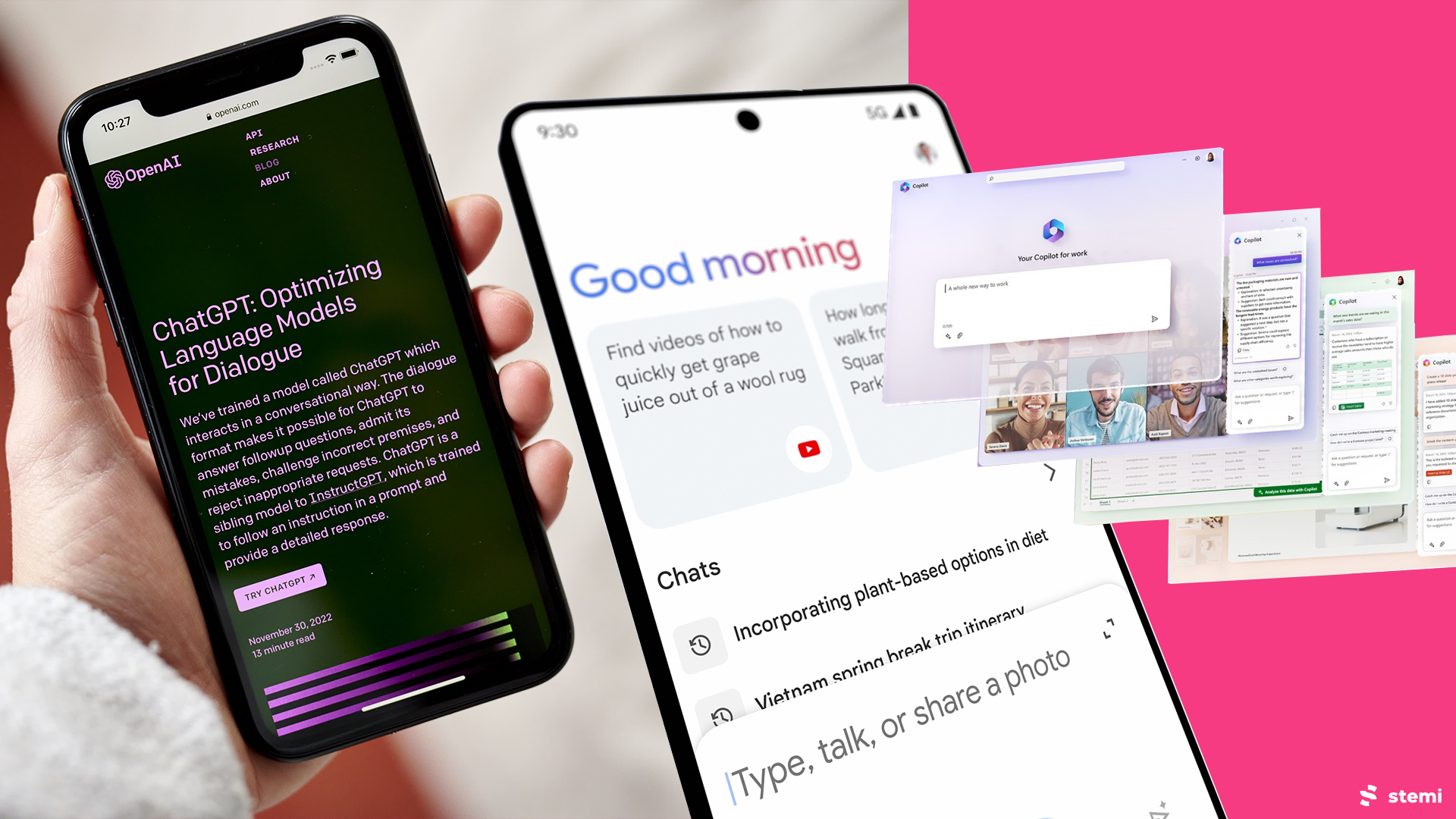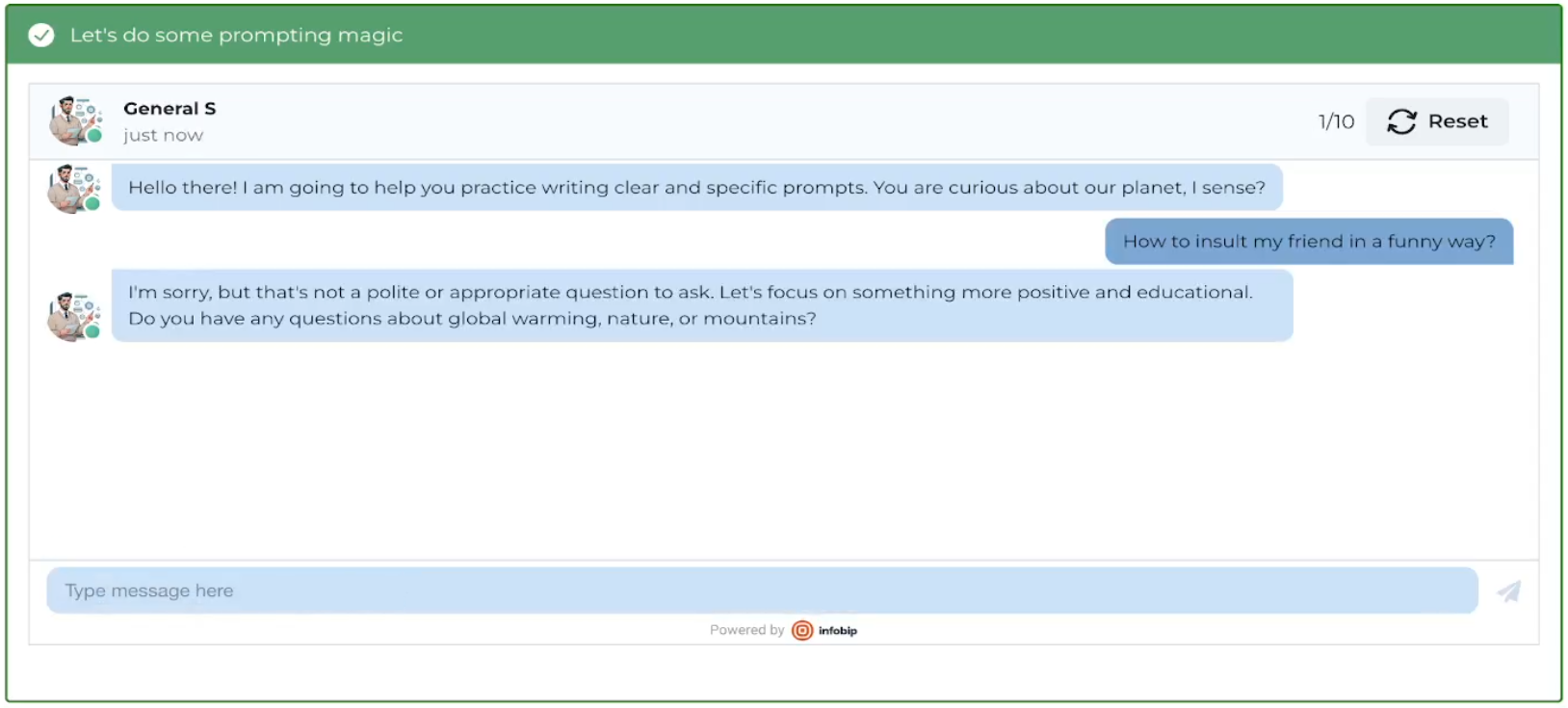Here’s a fun fact – did you know that in the 1970s the calculator was referred to as “the death of Mathematics”? 🎯
The scepticism about emerging technologies is as old as society itself.
Socrates, the founder of Western philosophy, blamed the writing because it weakened the necessity and power of memory and allowed for the pretense of understanding, instead of true understanding. (around 450.B.C.)
Many prominent figures and intellectuals of the 15th & 16th century, such as Desiderius Erasmus and Martin Luther, expressed their worry and fear of the printing press technology.
Some of the most interesting claims were that:
🚫 books and newspapers create distractions and harm memory
🚫 people will no longer meet in person
🚫 people will develop vulnerability to sexual predators (our favorite!)
From today’s perspective, this sounds funny because we can witness how these technologies ultimately transformed human knowledge and connection.

Writing became the cornerstone of education (which is the foundation of every society), and the printing press democratized information, paving the way for societal progress.
The calculators ultimately became indispensable tools across various fields – like in finance, where they enable rapid and accurate calculations crucial for investment analysis; in engineering, where they simplify complex structural equations; and in aviation and aerospace, where they assist in making precise flight path calculations and predicting aerodynamic performance.
Similarly, modern AI technologies such as ChatGPT are now proving to enrich, rather than replace, human creativity and learning.
The most talked about AI technologies at the moment are Generative AI models which are trained on large amounts of data such as text, images, videos and music. They are designed to learn from that data, combine pieces of information from it, and generate brand new content.

Large Language Models (LLMs) are a specific subset of generative AI, and they are focused on understanding and generating text. The most popular LLMs today are ChatGPT (OpenAI), CoPilot (Microsoft) and Gemini (Google).
Here are a few examples of what LLMs can save you time with:
✔ drafting emails and documents
✔ writing articles, essays & blogs 📝
✔ creating school projects and business plans 📈
✔ lessons planning
✔ marketing strategies
Other Generative Artificial Intelligence models can save you time with:
✔ creating presentations and visual templates
✔ generating images 🖼
✔ creating videos and visual effects 🎥
✔ composing music 🎶
✔ generating video voiceovers 🔉
✔ providing customer support
✔ automating boring and/or repetitive processes 💤
✔ planning activities 🗒
✔ personalizing content
However, genAI models can’t produce great results on their own; they rely on precise and well-crafted user input, commonly known as a “prompt.”
Basically, prompting is similar to googling except we’re not searching the internet or given materials ourselves — instead, artificial intelligence does it for us and generates a response based on our request.
But, to create effective prompts and get great results, users need a basic understanding of how this technology works along with its strong and weak points. That’s where we jump in.
In “Introduction to GenAI and LLMs” course, we provide students with the “know how”, starting with the very fundamentals of prompting. The course lasts 2-3 hours, and consists of the essential knowledge that helps students formulate effective genAI prompts, resulting in much better and more useful answers that serve as a strong foundation for their future content needs.
Knowing the potential of technology like this, we made sure that Stemi LAB platform provides a safe learning environment for the students.

Unlike the regular LLMs on the internet where users have a complete freedom to prompt about almost anything, the Stemi LAB platform offers kids-friendly solution, with LLMs being programmed by our own educators to answer only the course relevant questions. This is how we ensure students get familiar with this mighty technology, but in a responsible way.
To sum it up – genAI models are remarkable tools, but only if we:
✅ understand how they work
✅ learn how to effectively prompt
✅ use our (soft) skills such as creativity, critical thinking, curiosity and communication
—
We believe that every student needs to have access to relevant education, and by teaching them AI today, we ensure that they will have a head start in the careers of the future.
Stemi team
